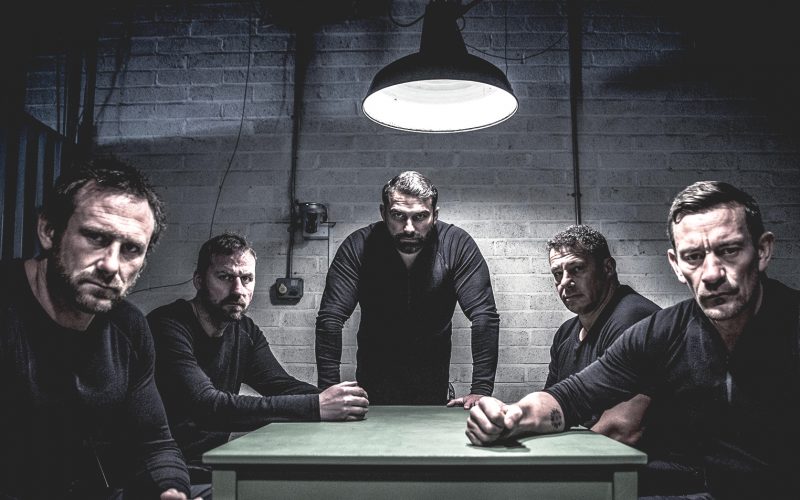SAS Heroes
In the recent Channel 4 series ‘SAS: Who Dares Wins’ ex-SAS hero Colin Maclachlan talked about his experience of being captured and tortured while deployed in Iraq. Reflecting on how his time in SAS selection prepared him (as best possible) for the ordeal, he remarked how he had come to realise that all the training was about getting the individual to a mindset of adaptability. So that when confronted with the scariest, chaotic and unexpected of situations, rather than panic, they can stay calm, composed and think: Ok, what now?
Zen Masters
This reminded me of the teaching methods of Zen masters. In his book, ‘The Way of Zen’, Alan Watts explains how the masters’ methods centre on creating challenges such as confusing koans, along with question and answer sessions referred to as ‘mundo’. The point of all these challenges is to get the student to a point of acceptance with everything they are faced with. To not anticipate what could happen but to react when it does, to be spontaneous. Alan Watts tells the story of the Zen-influenced Japanese fencing masters and how they aimed to create a similar state of mind in their students:
“The way they teach people spontaneity in fencing is very interesting… When you start fencing school, you live with the teacher. You’re given a janitorial job; you clean up, wash dishes, you put bedding away and things like that.
While you’re going about your daily business, the master surprises you with a practice sword, made with four strips of bamboo, loosely tied together, and he hits you with this suddenly, from nowhere. You are expected to defend yourself with whatever is available; with the bedding, with the broom, with the pots and pans, just anything. But the poor student never knows when the attack is coming, or what direction it’s coming from and he begins to get tense. He begins to go around everywhere alert, watching and trying to anticipate which direction it’s coming from. And as he goes down a certain passage, feeling that the master’s probably lurking around that corner, and he’s all set to go for him, he suddenly gets hit from behind.
So eventually he gives up, there’s absolutely no way of preparing for the attack, so he just wanders around feeling well, if it hits it’s going to hit.
At that point he’s ready to begin fencing.
Because if you prepare for an attack from a specific direction, but it comes from another direction, you have to withdraw from the direction in which you expected it and send your energy in another direction, and that takes time. So what you do is you go around with a mind of no expectation; that is called ‘mushin’.”
Mushin – ‘The mind without mind’. This is the state of mind that greets unexpected situations with: Ok, what now?

In sport, 3-time rugby world champions, New Zealand are famous for being able to make the most out of chaotic situations in the field of play. Before England’s 2012 victory over the All Blacks I was lucky enough to sit in on one of the England team meetings. The key point from the meeting was that the All Blacks would capitalise on a broken field of play, so England had to control the territory and make sure they didn’t give away penalties that would allow New Zealand to notch up a lead which would force England to stretch themselves too far in attack while trying to play catch up, as New Zealand would then further exploit this and run away with the scoreline. England was able to succeed with these tactics on that day, but very few teams have been able to since.
This can also be seen as antifragility personified – the ability to benefit from chaos. New Zealand’s superiority is rooted in the mastery of basic skills, but it’s also born out of a certain mindset, a mindset of ‘Ok, what now?’ I think this line of thinking is brilliantly demonstrated by recent Wasps signing Charles Piutau, who has 16 caps with the All Blacks, in the video below (0:30-1:16).
“I’m thinking I’m going to take that gap there, and see what happens, see what unfolds…”
I’ve seen many players from other nations that when faced with a video scenario to talk through, like the one above, they explain it in a much more deterministic manner. Along the lines of, “I ran here, to make this guy do that, so that guy would do that, so I could give my teammate the ball and he could do that.” Maybe they did think that way, and it will obviously work some of the time. But the All Blacks have had much more success than any other team ever, maybe this is an insight as to why. As Alan Watts pointed out in reference to the fencers; a pre-set plan is much harder to correct than an open mind that is ready to react – a mind that can face an obstacle, keep calm and composed, and think: Ok What Now?
Life
Encountering and dealing with struggle is a fundamental human experience. If you look closely at all faiths, religious teachings, ancient myths, fables and all our modern stories, you will realise that almost all of them are trying to teach us how the individual should manage adversity in their lives. The first step is acceptance, then to assess Ok, What Now? To open the mind to what options are still available despite the obstacle. Achieving mastery in sport, and even in life, isn’t about being able to predict the future, it’s a process of taking OWNership of the situations we face and reacting to what we find there.
Resources
SAS: Who Dares Wins – http://www.channel4.com/programmes/sas-who-dares-wins
The Way of Zen by Alan Watts –


Hi, this is a comment.
To get started with moderating, editing, and deleting comments, please visit the Comments screen in the dashboard.
Commenter avatars come from Gravatar.